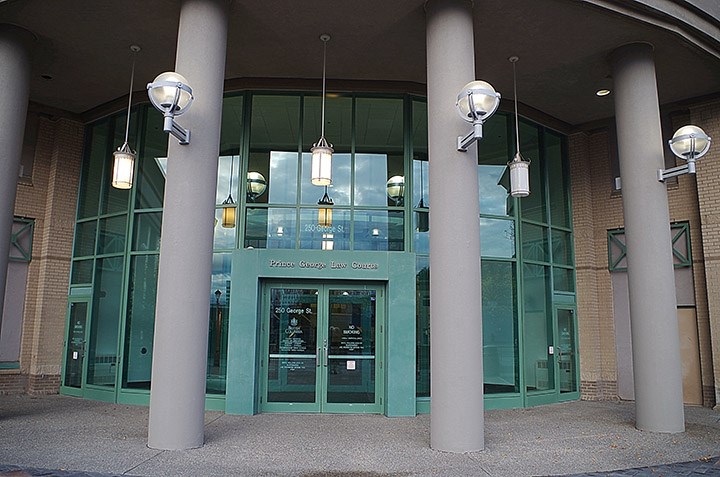A trial began Tuesday for a Valemount man who was behind the wheel during a deadly rollover east of the city.
Duane Glen Smith, 43, faces one count each of impaired driving causing death and dangerous driving causing death from a Sept. 19, 2019 crash on Highway 16 near the Penny Access Road, about 100 kilometres east of the Prince George. Smith's girlfriend, Dakota Shaw, 21, later died from injuries suffered in the crash.
Crown prosecution is alleging that in the lead up to the crash several civilians saw the car travelling at a high rate of speed and that an RCMP collision reconstructionist later determined a speed of between 141 and 149 km/h at the time of the crash.
Several civilians came to the couple's aid at the scene while one drove toward where there was cell service and, at about 5:20 p.m., called 911.
Shaw, who was ejected from the vehicle, was flown by helicopter to University Hospital of Northern British Columbia in Prince George where she was declared deceased early the next morning.
Upon arrival at the crash scene, RCMP found open cans of alcohol and the smell of liquor on Smith's breath, the court heard. He was arrested and transported to the Prince George RCMP detachment where he provided a breath sample that measured just 30 milligrams per litre of blood, or 0.03 per cent, well below the 0.08 per cent level at which a driver is considered criminally impaired.
But police also noticed some "stabbings on his arms" and, combined with some other observations, that led them to believe he may have been impaired by drugs and a drug recognition expert demand was read to him.
By then, Smith had complained of chest pains and was transported by ambulance to the hospital where he provided blood and urine samples for a medical purpose.
He was later handed back to the RCMP and transported back to the detachment where a drug recognition expert found Smith was impaired by analgesics, or pain killers, the court was told.
Smith provided a urine sample and was transported back to the hospital to meet with Shaw, who was pronounced dead shortly after 2 a.m. on Sept. 12, 2019.
Four weeks later, police obtained the urine sample Smith had provided at the hospital, but not the blood sample which had been disposed of by then.
Both the sample Smith provided to police and the one provided at the hospital were sent away for analysis and a number of drugs were found to have been in his system, the court was told.
The trial, being held before Provincial Court Judge Judith Doulis, is expected to last as many as 15 days spread over the next three months. Sixteen witnesses, ranging from civilians, to RCMP to experts, are scheduled to testify.
The trial proper began Tuesday with a series of voir dires, or trials within trials, to determine whether Smith's Charter rights were violated in terms of timely access to counsel and whether RCMP had reasonable cause to issue the drug expert recognition demand.
The outcome of those trials will determine admissibility of various key pieces of evidence, including utterances by Shaw prior to her death.


